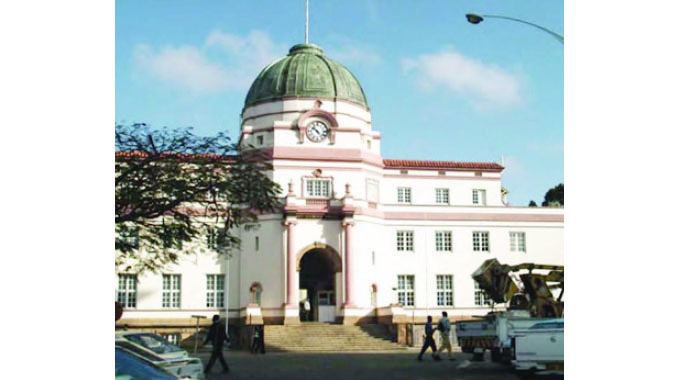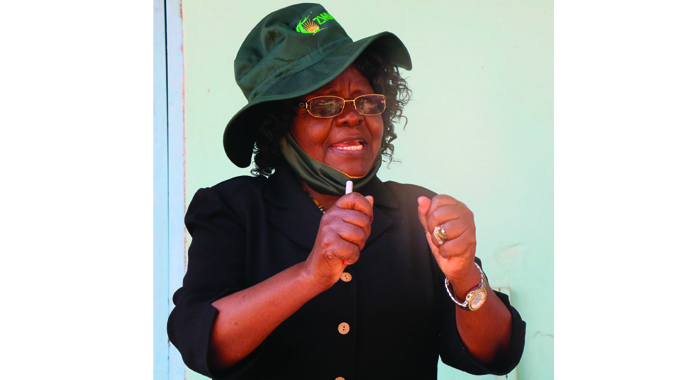Sexual abuse of minors an acid test for Zimbabwe’s legal system

Michael Magoronga, Midlands Correspondent
Just when many across the country thought they had seen it all, the worst came.
The news of a 9-year-old girl who was sexually abused and impregnated in Tsholotsho became the talk of town.
Days later, a report of yet another pregnant 9-year-old in Bindura broke many hearts, leaving people wondering what is becoming of this world.
While many were still digesting the news, yet another girl was reportedly impregnated by her two 17-year-old brothers who allegedly took turns to abuse her. A Kadoma man reportedly fled the country after it emerged that he had been abusing his young daughters aged 12 and 16 since they were young.
The list is endless. It’s a reflection of how cruel the world has become to the young ones who would be looking up to their parents or guardians who have instead turned into monsters.
Most disturbing is that a significant number of these cases are being perpetrated by close relatives.
The recent developments have put the country’s judicial system under the spotlight as such cases, in most instances, take time to be concluded with the perpetrators walking scot free.
Quick to come to mind is the case of Hatirarame Evans Momberume (27), the man who had married Anna Machaya, who later died while giving birth at a shrine in Marange. Momberume is believed to be on the run after he was released on bail.
This was after he initially appeared in court and charged with murder and having a sexual relationship with a minor and was granted bail.
The developments have left many calling for realignment of laws and guard against granting bail to suspected sexual predators. Lengthy deterrent sentences when convicted are expected.
Human rights activists have been calling for stiffer penalties, which they think will deter offenders.
Shamwari YeMwanasikana’s Advocacy and Research Coordinator Ms Rudo Magwanyata said perpetrators should be handed mandatory and harsher custodial sentences.
“If our judicial system resorts to harsher custodial sentences and if mandatory sentences can be crafted, it can go a long way in sending a message to the community that such crimes are not committed. We can actually see a decrease in cases of sexual exploitation as a result,” she said.
Ms Magwanyata said there was an urgent need for the realignment of laws so that perpetrators are not subject to bail or parole.
“We need the realignment of our law into the judicial system. Our law should guide the judiciary on minimum and maximum custodial sentences. We should have mandatory sentences that wait for people who commit such heinous acts like life imprisonment without an option of a parole,” she said.
Ms Edwick Madzimure of Women’s International League for Peace and Freedom (WILPF) concurred saying lengthy custodial sentences is what the country needs.
“If we manage to get to that point, issues of GBV [gender-based violence] and sexual exploitation will be taken seriously. If a cattle rustler gets a minimum mandatory sentence of 9 years, why can’t we do that to perpetrators of sexual exploitation who are being given community service in some instances.
Obviously we’re sending the wrong message to society,” she said.
She expressed concern over the granting of bail to suspected offenders saying such people did not deserve it until justice was achieved.
“The granting of bail has mental health implications as the survivor has to meet the perpetrator time and again. This is despite the obvious reason of attempting to evade justice like in the case of Momberume. Such people should never be given bail under whatever circumstances,” she said.
Legal expert, Ms Lina Nyamukachi however believes that the judiciary was doing its best to address cases of sexual exploitation although she highlighted that more needed to be done to engage the community on such cases.
“I don’t think there’s much that needs to be done in terms of law reform but more needs to be done to conscientise communities on the importance of children’s rights. There’s a need to engage the church, political parties, and other rights organisations which have a huge following and preach the gospel of children’s rights. That way we can make a difference,” said Ms Nyamukachi.
She said the courts have been doing their best in trying to send a message to the society.
“I have so much confidence in our courts and our judiciary in as far as addressing children’s rights is concerned. But like I said, it all boils down to our community where we’re saying it takes the whole village to raise a child. They should be quick to report issues instead of concealing them like in some cases,” said Ms Nyamukachi.
Government recently assured the nation that the law would be implemented fully to bring to book perpetrators of child sexual abuse in communities.
Women Affairs, Community, Small and Medium Enterprises Development Minister Sithembiso Nyoni said a collective approach by all stakeholders and responsible authorities was needed to take action against such criminal acts.

Dr Sithembiso Nyoni
Minister Nyoni said the fact that in all the cases, communities, parents and guardians had been at the centre of concealing the abuse was very worrying.
“The Ministry condemns in the strongest sense such harmful practices and calls upon all stakeholders to be proactive in the fight against gender-based violence and harmful practices particularly child marriages. The Marriages Act clearly states that the age of marriage is 18. Families, communities, religious and traditional leaders need to spring into action against such contemptible acts. We call upon families and girls to shun the culture of silence and speak out,” said the Minister.
Zimbabwe has put in place several laws and policies which aim at improving the lives of women and young girls and has also acceded to and ratified several international and regional instruments that mandate the country to eliminate all forms of discrimination and abuse of children.
Public Service, Labour and Social Welfare Minister, Professor Paul Mavima said Government was re-examining the approach on child sexual abuse cases.

Professor Paul Mavima
“We need to redouble efforts to make sure we identify, and better still, prevent cases of child abuse. We can’t afford to lose the potential the youngsters have for the development of this country and be robbed of their future,” he said.
Prof Mavima called on stakeholders involved in child rights to ensure that safe environments for children are created within communities. “A child belongs to everyone hence child protection requires collective action. Let us not wait for the worst to happen. I urge the nation to properly report all cases of children at risk of abuse,” he said.
“We’re committed as a ministry to lead in this vicious fight against perpetrators of child abuse.
Communities should not hesitate to bring all suspected cases of abuse to the attention of relevant authorities such as police, community child care workers in every ward and district and provincial social welfare offices across the country.”












Comments